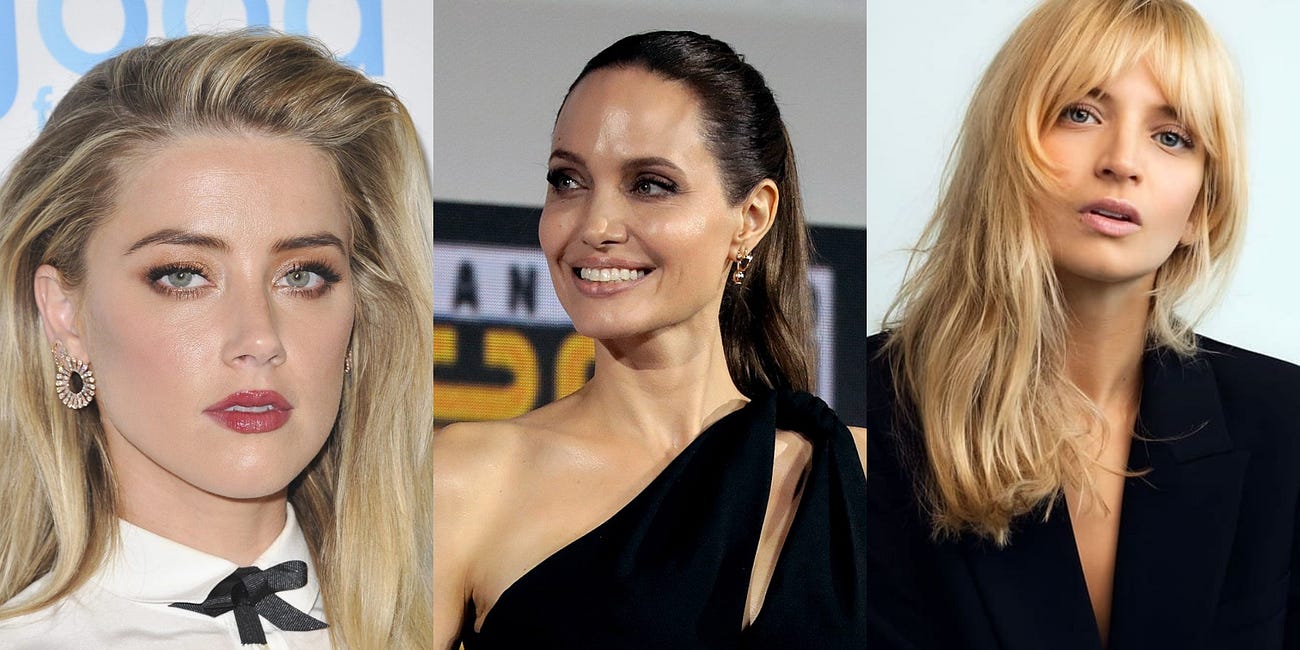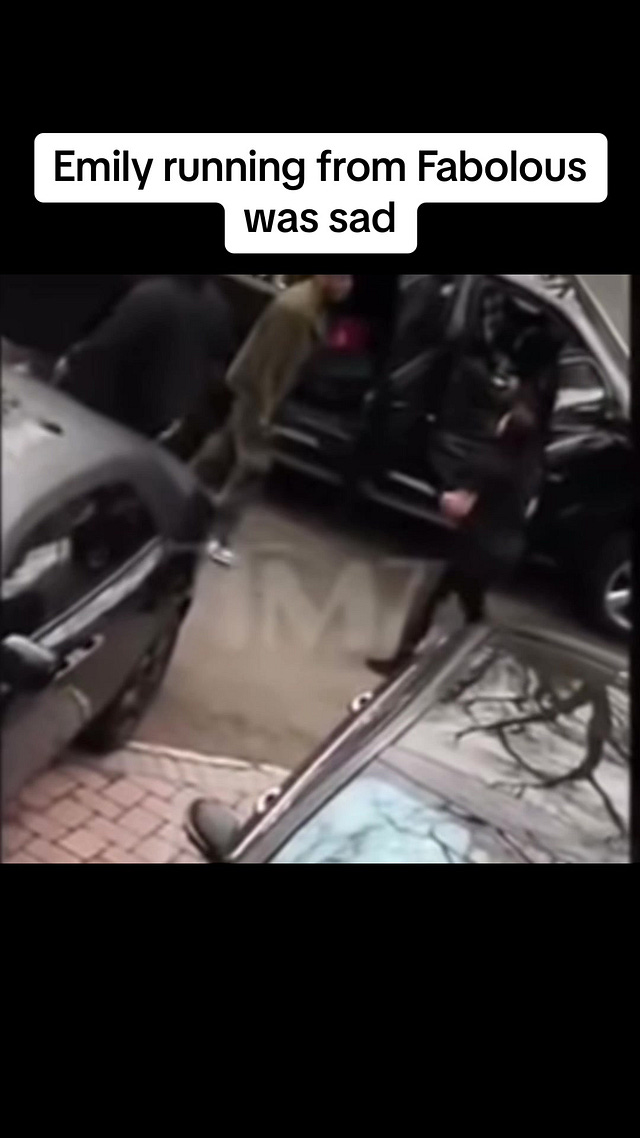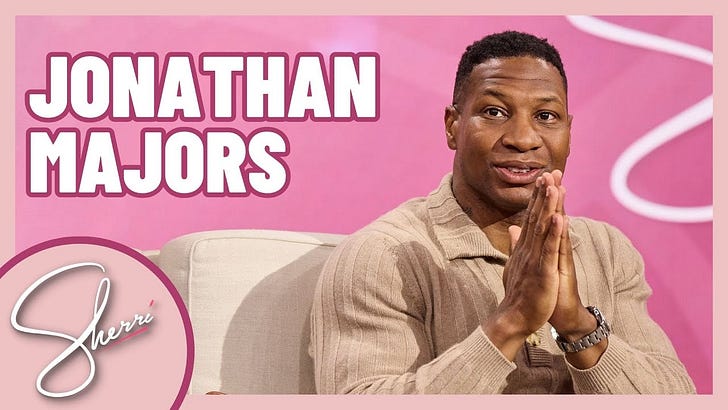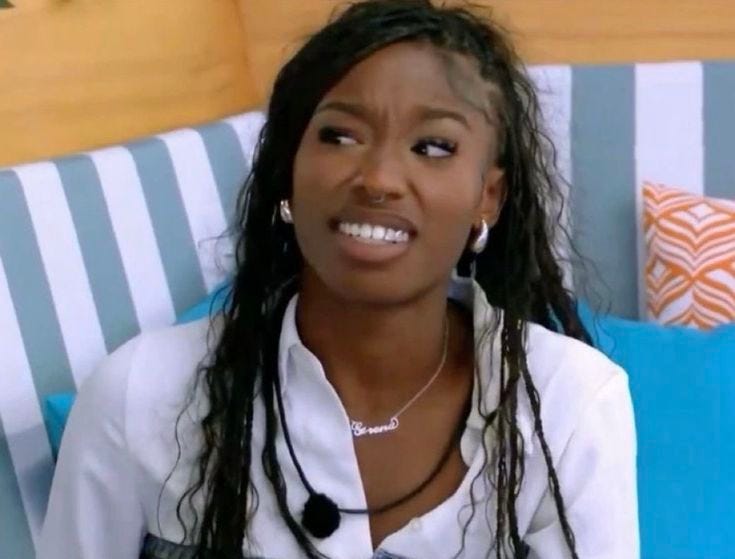Trigger Warning: This newsletter contains discussions and references to abuse, including emotional, physical, and sexual abuse. It’s understood that these topics can be distressing and may trigger intense emotional responses.
“This Industry Protects Power, Not People”
I need to say this clearly and without compromise: the way Hollywood represents abuse, when it chooses to represent it at all, fails victims and survivors in a way that is dangerous, intentional, and systemic. We live in a culture where women are shamed for surviving and men are praised for moving on. When someone like Cassie Ventura must relive her trauma because the world idolizes her abuser, while men like Fat Joe, Fabolous, and Joe Budden are still being propped up as cultural icons, it’s not just a media failure, but it’s spiritual neglect.
It tells victims, especially Black women, “You don’t matter. Your pain doesn’t move us.”
I’m tired of the selective outrage. I’m tired of the hollow “believe women” statements when it’s popular and the deafening silence when it’s not convenient. What does it say about our industry and our culture that people are still supporting Diddy even after the damning lawsuit Cassie filed? That people like Funk Flex, Tiny Harris, Lil Scrappy, Jay Electronica, and Boosie still go out of their way to defend a man who’s being accused of trafficking, abuse, rape, and manipulation? It tells me the industry’s true religion is power, not people. Not truth. Not healing. Just power.
Let’s talk about systemic rejection, because it doesn’t just happen in boardrooms. It’s in comment sections. It’s in the way newsrooms downplay lawsuits. It’s in the way shows and movies are greenlit with abusers in lead roles while survivors are forced into silence. This rejection is woven into every level of entertainment.

Cassie Ventura didn’t come forward with vague allegations. She came with receipts. She exposed years of abuse, trafficking, beatings, and psychological control, and yet she was dismissed. Gaslit. Used as a meme. People asked why she waited. People speculated that she “took the money.” People tried to make her survival a business transaction rather than a trauma response.
Halle Bailey, just by existing she upsets people because they value the life of a low lifer who doesn’t deserve her at all. The world projects its hatred of Black femininity onto her, turning her into a canvas for collective misogyny. And when she doesn’t show pain publicly, they dig harder.
And Brittany from The Valley on Bravo? The moment she shared her truth about being abused, she was accused of lying, exaggerating, and manipulating the narrative for screen time. What we’re seeing is a pattern: when women speak, especially women of color, they are not believed. Not protected. They are dissected.
Meanwhile, the men who harm them thrive. That’s not by accident. That’s by design.
Hollywood loves to pat itself on the back for surface-level representation. A Black woman in a Marvel movie. A survivor character in a new drama. A PSA before an award show. But what happens after the applause dies down? Are those same studios hiring survivors to consult on scripts? Are they funding the mental health care of women who’ve been abused on set? Are they deplatforming abusers?
High-Profile Domestic Violence Cases in Hollywood: A Deep Dive into Division, Accountability, and Industry Culture
Trigger Warning: This newsletter contains discussions and references to abuse, including emotional, physical, and sexual abuse. It’s understood that these topics can be distressing and may trigger intense emotional responses.
“Representation without accountability is propaganda.”
We need representation that challenges the power structure, not reinforces it. When survivors are given platforms in real life, not just in fictional scripts, that’s when change can begin. But right now? Most representations of abuse in Hollywood are shallow, triggering, and carefully engineered to avoid discomfort. We don’t need another trauma plotline that doesn’t center healing. We don’t need another “strong Black woman” archetype who survives everything and gets no rest. We need more women writing with us, not more stories by men who wants to save us or save face.
We need stories that reflect the reality: that abuse is ongoing. That survivors lose jobs, families, reputations, and safety. That healing isn’t linear. That the system is not neutral, but it’s hostile.
Let’s call it what it is: male celebrity culture in hip-hop and entertainment is rooted in the protection of abusers. That’s why people can easily overlook Fat Joe’s allegations. That’s why Fabolous (who was caught on camera physically threatening the mother of his children) is still being booked. That’s why Joe Budden, with a documented history of abuse allegations and confessions of violence on his own podcast, is still offered major deals and guest appearances.
“There is no “cancel culture” for men like this. There is only reinvention.”
When women come forward, the world pauses just long enough to say “that’s crazy,” then it moves on. But when men are exposed? Suddenly the industry demands nuance, “the full story,” and “second chances.” They are given PR redemptions while victims are erased.
Power, Representation, and Cover-Ups
Trigger Warning: This newsletter contains discussions and references to abuse, including emotional, physical, and sexual abuse. It’s understood that these topics can be distressing and may trigger intense emotional responses.
And when other industry men co-sign abusers, they reinforce the message: we protect our own. That’s what Funk Flex did when he continued playing Diddy records post-lawsuit. That’s what Tiny Harris did by laughing off Diddy’s allegations while facing her own disturbing accusations. That’s what Jay Electronica did by publicly aligning himself with Diddy and threatening accusers. That’s what Boosie did with his history of dismissing victims and mocking women.
These are not isolated moments, they are cultural signals.
The message is: power protects itself. No matter the body count.
Let’s be honest. We live in a world where misogyny isn’t just tolerated, it’s monetized. Entire platforms are built off the humiliation of women. Algorithms reward creators who mock abuse survivors, who dissect women’s trauma, who turn Black women’s pain into spectacle.
This is part of why Halle Bailey is such a target. She’s not performing her pain. She’s not broken. She’s not publicly naming her boyfriend as abusive. So the public decides for her. They need her to suffer. They need to punish her for choosing love, even if we don’t know the details. That’s misogynoir.
Same with Cassie. She was quiet for years, and people took her silence as complicity. But the moment she spoke, they called her a liar. Do you see the trap? Speak and be shamed. Stay silent and be blamed.
There is no safe route for survivors in this industry. Because this industry was not built for survivors, it was built to exploit them.
“Supporting Diddy is a Political Statement!”
If you are still supporting Diddy in 2025, you’re making a political statement. You are saying that power matters more than people. You are saying that Black women are disposable. You are saying that you do not believe survivors, no matter how much evidence they provide.
This isn’t about just one man. It’s about what he represents. Diddy is a symbol of unchecked power. Of what happens when the industry creates a god out of a man who allegedly brutalized dozens of people over decades. When people defend him, they are defending that system, not just his character.
So when Funk Flex spins his records, when Boosie posts his defenses, when Jay Electronica says he’s willing to die for Diddy, just know that’s not just loyalty. That’s an indictment of the whole machine.
Let’s never forget: it’s always the women who pay the price. Women like Cassie, Halle, and Brittany become punching bags for a public that refuses to interrogate its complicity. They’re not allowed to heal privately. They’re not given grace. They’re expected to rise, smile, forgive, move on, but for the comfort of others.
And even when they don’t say anything (like Halle), people invent abuse. They write essays on her womb, her relationship, her body, her mind. As if the world has a right to dissect her for sport. Meanwhile, abusive men get to rebrand as fathers, podcasters, mentors, kings.
Where’s the justice in that?
“If You Can’t Protect Us, Don’t Represent Us.”
Representation without protection is exploitation.
Don’t say you care about survivors if you still play Diddy in the club. Don’t say you support women if you publicly gaslight Halle Bailey. Don’t say you stand for justice if you uplift abusers in your playlists, your podcasts, your platforms.
Survivors deserve more than hashtags. We deserve safety. Respect. Healing. We deserve an industry that doesn’t just tell stories about abuse, but one that stops enabling it.
“If you can’t protect us, don’t represent us.”
To every survivor reading this: you are not invisible. You are not alone. And you are not crazy for feeling like the world doesn’t believe you; because too often, it doesn’t. But your truth matters. And we will keep telling it, no matter who tries to silence us.
Breaking the Silence: The Importance of Intervention on International Day for the Elimination of Violence Against Women
Trigger Warning: This newsletter contains discussions and references to abuse, including emotional, physical, and sexual abuse. It’s understood that these topics can be distressing and may trigger intense emotional responses.
Domestic Violence in America: The Silent Epidemic and Media's Role in Shaping Public Perception
Trigger Warning: This newsletter contains discussions and references to abuse, including emotional, physical, and sexual abuse. It’s understood that these topics can be distressing and may trigger intense emotional responses.














“There’s no cancel culture for men like this. There is only reinvention”. ALL OF THIS!!! I’ve experienced sexual assault from a man in the music industry. He’s my ex boyfriend. We are both vocalists and sang in the same band. When I told people in the leader of the band and people in the music industry I wasn’t believed. I was told how could he choke you and you survive it, he’s so much bigger than you!? I was called stupid and I was treated like what I went didn’t matter to them because it didn’t and still doesn’t. I basically watched all of the people in the industry who I thought were my friends take his side. They know he’s not a good dude but they still took his side. I guess because he has more of a name and he could possibly get them work in the music industry. I took him to court for choking me while him and I were singing in the same band standing right next to each other every weekend. Everyone knew what was going on and no one cared. He was still looked at like THE MAN! And I was ignored.
I’ll stop there because I could say so much more.
This article is so on point! Thank you for sharing the truth about these situations. It’s good to know that there are people out there who actually care. 🙏🏾🙏🏾💞💞
This exposes what most industry ‘reckonings’ refuse to touch: how narrative capital is used to protect abusers. Playing a Diddy track isn’t neutral, it’s endorsement dressed as nostalgia.